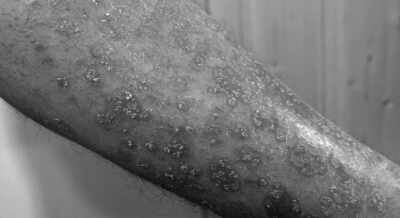New Delhi, 4 June (IANS). Children who have been in contact with dogs since childhood may reduce the risk of allergic diseases ‘atopic eczema’. Research has shown that exposure to dogs improves children’s immunity and reduces their skin sensitivity.
Eczema is a kind of itchy skin disease, caused by a combination of body jeans and surrounding things. But there is very little information about how these two work together.
According to experts, this new research helps us understand why eczema disease occurs in children. Researchers say that bringing dogs home in some children can also make the condition of eczema worsen. Therefore, it cannot be right for all children to keep dogs.
Sara J. of the University of Edinburgh Brown said, “We already knew that the child’s congenital design increases the risk of her eczema. And some earlier studies have also been told that having dogs in the house can reduce this danger. But this is the first time a study is showing how this effect is at small level inside our body.
In this research, the team used the data of 16 European studies. They tested the relationship between 24 eczema-related genetic variants and 18 early lives environmental factors to find out how these two connect with eczema.
He tried his findings at more than 10 different studies and tested in the lab to correctly examine his conclusions.
In the first investigation, which included 25,339 people, it was discovered that seven things, such as the use of antibiotics, a cat, the dog cradle, breastfeeding, smoking, hand washing methods, etc., all these can affect the risk of eczema. Overall, there were 14 types of effects that were happening between genes and these environmental things.
In the second investigation, which involved 2,54,532 people, it was found that coming in contact with the dogs affects our body with a particular gene, this protein works in our immune system i.e. our disease fighting cells.
The tests conducted in the lab showed that this particular gene affects the texture of the interlucin-7 receptor in our skin cells. Also, this gene reduces its negative effects by coming in contact with dogs.
-IANS
PK/AS






